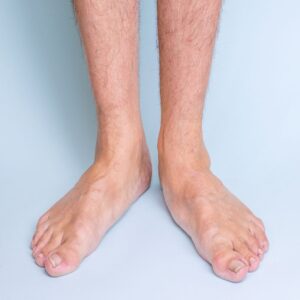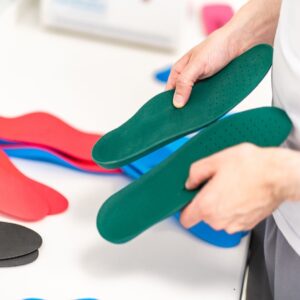Welcome to CEC Health Center!
Podiatrist in Westbury That Accepts Medicaid

CEC Health Center – A Federally Qualified Health Center (FQHC)
The mission of CEC Health Center (CEC) is to provide high-quality, comprehensive healthcare to underserved community members with limited incomes including those with autism, learning and developmental disabilities, and behavioral and mental health concerns. Looking for a Podiatrist in Westbury That Accepts Medicaid? Contact The CEC Health Center today for more information.
Overseen by culturally sensitive, credentialed medical staff, our patient-centered approach, and high-quality primary and specialty services are provided regardless of a patient’s background or ability to pay.
Why CEC Health Center?
CEC provides a team-based approach by putting the patient at the center of their care. Using the highest standard of medical care we give the patients the tools they need to achieve a healthy lifestyle.
CEC Board Certified physicians provide more than healthcare, they provide life care.
Insurance & Payment
CEC accepts Medicare, Medicaid and all Medicaid Managed Care Plans and Commercial Insurance with out-of-network benefits. A sliding fee scale is available. For more information please contact our office at (516) 622-8888.
Office Hours & Locations
Nassau County
857 South Oyster Bay Road, Bethpage, NY 11714
(516) 622-8888
Monday through Thursday, 8:00 a.m. – 8:00 p.m.
Friday, 8:00 a.m. – 5:00 p.m
Glen Cove
113 Glen Cove Avenue, Glen Cove, NY 11542
(516) 622-8888
Suffolk County
305 Oser Avenue, Hauppauge, NY 11788
(516) 622-8888
Monday through Friday, 9:00 a.m. – 5:00 p.m
Chemical Dependency Clinic
Monday: 9:00 am – 8:00 pm
Tuesday: 8:00 am – 8:00 pm
Wednesday: 9:00 am – 8:00 pm
Thursday: 9:00 am – 8:00 pm
Friday: 9:00 am – 5:00 pm
Mental Health Clinic
Monday: 9:00 am – 5:00 pm
Tuesday: 9:00 am – 7:00 pm
Wednesday: 9:00 am – 7:00 pm
Thursday: 9:00 am – 7:00 pm
Friday: 9:00 am – 5:00 pm
How To Deal With Ankle Pain
Ankle pain can be a debilitating experience, and it is crucial to take the necessary steps toward managing it properly. CEC Health Center provides tender and evidence-based care. Visit our website if you need a podiatrist in Westbury that accepts Medicaid. Depending on the cause and severity of your ankle pain, several treatment options are available.
Ankle Pain
First and foremost, rest is the key to relieving ankle pain. Refraining from activities that may have caused the pain in the first place is essential. If your ankle pain persists beyond a few days of rest, it’s critical to seek medical attention. A doctor can help identify the cause and provide an appropriate treatment plan.
In addition to resting, icing your ankle may also be beneficial in reducing inflammation and relieving some of the pain. Applying an ice pack or cold compress (wrapped in a towel) to the affected ankle for 15-20 minutes at a time, several times a day, can be beneficial.
Taking over-the-counter medications such as ibuprofen and acetaminophen may also help relieve pain and reduce inflammation. However, it is essential to consult your doctor before taking any medication to ensure that it is safe and appropriate. Physical therapy can also be a great way to reduce ankle pain and improve mobility. Your doctor may recommend physical therapy exercises focusing on the range of motion, flexibility, strength, and balance. These exercises can help protect the joint and increase overall ankle strength. At CEC Health Center, we look out for our patients. Contact us today if you need a podiatrist in Westbury that accepts Medicaid!
Causes of Ankle Pain?
Various factors, including overuse, trauma, infection, and disease, can cause ankle pain. Overuse injuries are often caused by repetitive activities such as running or jumping. Trauma is usually the result of an acute injury, such as a sprained ankle or fracture. If you think you have suffered an ankle injury, contact us today! We are an excellent podiatrist in Westbury that accepts Medicaid.
Contact Our Podiatrist in Westbury That Accepts Medicaid
We are dedicated to providing quality and evidence-based care at CEC Health Center. Our team of podiatrists is experienced in treating various ankle conditions and can help you find the best treatment for your specific needs. Visit our website today if you need a podiatrist in Westbury that accepts Medicaid.
Foot Strengthening Exercises
Do you experience aches and pains in your feet that make daily life difficult? Using our feet is vital to how we function. It is important to have strong feet that will get you through each day pain-free so you can be as active as possible. Are you looking for a Podiatrist in Westbury That Accepts Medicaid? Exercising and strengthening your feet can be confusing, but The CEC Health Center is here to help! We provide treatment, exercises, and guidance that will strengthen your feet for years.
Causes of Foot Pain: Podiatrist in Westbury That Accepts Medicaid
The wear and tear we put our feet through will lead to aches and soreness if we don’t take care of them. Athletes commonly experience foot pain, which can also hinder performance. Injuries or conditions such as arthritis and diabetes can cause weak and pain-stricken feet, but you should be aware of these before you begin treatment. As a Podiatrist in Westbury That Accepts Medicaid, we recommend that you come in for a visit.
Exercises To Strengthen the Feet
If you’re looking for a Podiatrist in Westbury That Accepts Medicaid and can help you with foot strengthening exercises, The CEC Health Center is the place for you. Whether you’re looking for pain relief or want to have stronger feet, some examples of quality foot strengthening exercises are listed below:
- Toe raise, point, and curl
- Toe extension
- Marble pickup
- Big-toe stretch
- Tennis ball roll
- Achilles stretch
- Sand Walking
It is Important to Warm Up Before and Avoid Painful Exercise/Stretching Sessions
Be sure to get the blood flowing in your feet before you do these exercises. If you’re doing them at home, take a walk around the house, take a quick walk or bike ride outside, or do whatever you need to get warmed up. It is also important to keep in mind that these exercises should not be painful. For example, don’t go so far if you feel pain while stretching.
Contact Our Podiatrist in Westbury That Accepts Medicaid
We realize that doing these foot strengthening exercises on your own can be confusing, which is why we invite you to visit The CEC Health Center so that we can guide you on your way to stronger feet. If you want to strengthen your feet and are looking for a Podiatrist in Westbury That Accepts Medicaid, contact us today.
What Causes Flat Feet?
Feet pain is not easy to deal with and can worsen if it’s not treated correctly. Flat feet, also known as pes planus, is an example of a condition that can cause this pain. At CEC Health Center, we provide podiatry services! Please visit our facility today if you’re interested in seeing a Podiatrist in Westbury That Accepts Medicaid. Read more below to learn about flat feet.
Flat Feet
Individuals with flat feet have a different foot shape, including either low or no arch in the feet. The sole makes complete or near-complete contact with the floor. This condition develops when the tendons do not gather together to form an arch. There are two types of flat feet: flexible flat feet, commonly found in the pediatric population, and rigid flat feet, which are developed in adulthood. We have a Podiatrist in Westbury That Accepts Medicaid at our facility to solve any of your flat feet problems. Read below to learn about the several causes and risks of flat feet:
- Injuries and fractures to the foot area
- Damaged tendons
- Obesity
- Diabetes
- Pregnancy
- Arthritis
Once you schedule your appointment with us, we will provide you with a proper evaluation and determine your diagnosis. We will obtain your medical history and observe your leg and feet movements. We will also do other forms of exams such as X-Rays, ultrasounds, CT-Scans, or an MRI. This will allow us to determine your condition and develop a treatment plan.
Treatment of Flat Feet
Flat feet should be treated immediately if you are experiencing any pain or imbalance. Simple remedies can also be changing your footwear or using ice/heat to the swollen area. Flat feet can also be treated by obtaining an orthotic device. The podiatrist will provide a custom-made device that you put in your shoes to comfort and support your feet. Another treatment option is to participate in stretching exercises to relieve pain. Physical therapy is another option that your podiatrist may suggest. You can also have medication prescribe
Contact Our Podiatrist in Westbury That Accepts Medicaid Today!
Feet pain is not easy to deal with and can worsen if it’s not treated properly. Flat feet, also known as pes planus, is an example of a condition that can cause this pain. At CEC Health Center, we provide podiatry services! Please visit our facility today if you’re interested in seeing a Podiatrist in Westbury That Accepts Medicaid.
Can Custom Orthotics Treat Lower Back Pain
Back pain is one of the most common medical problems. Whether mild or acute, you will likely experience back pain at least once throughout your lifetime. It is often very hard to figure out what is causing the pain and how to treat it. If you have back pain, it could be because of your feet which means you may need custom orthotics from a podiatrist in Westbury that accepts Medicaid. Contact us today to learn more!
What Are Orthotics? Podiatrist in Westbury That Accepts Medicaid
Orthotics are a special shoe or heel inserts custom-made specifically for you and are prescribed by a podiatrist in Westbury that accepts Medicaid. While you can find a heel pad and shoe insert at many athletic stores, orthotics are highly customized for your feet. There are two different kinds of orthotics:
- Rigid Orthotics: these are also known as functional orthotics and are made of plastic or carbon fiber. These are best for walking shoes or dress shoes with low heels and a closed toe. Rigid orthotics are designed to reduce pain in your feet and strains in the legs or lower back.
- Soft Orthotics: these are also known as accommodative orthotics, made from soft compression material. They provide cushioning and help reduce plantar fasciitis or diabetic foot ulcers.
What Conditions Do Orthotics Treat
There are many reasons why a doctor might prescribe orthotics to a patient. One reason is to treat back problems. Some individuals experience back pain due to poor positioning of the feet. This means that the arches may roll inward, or a lack of cushioning causes pain. Orthotics can fix these problems and overall realign how the feet lay on the ground, affecting the body’s entire posture.
Improving The Kinetic Chain
As mentioned above, orthotics realign and stabilize the position of your feet, which helps improve posture. The medical term for this is the kinetic chain. The base of the kinetic chain is the feet. Also, every joint above the feet is a link to this chain. If your feet are pronated while walking, the kinetic chain is negatively affected. Pronated feet also cause the knees to become knocked-knees which means they come together. This messes with the angulation of the hips and knees, which destabilizes the pelvis. When the pelvis is not stabilized, this can affect your posture and spine, causing pain in the back. This goes for supination of the feet as well. Orthotics can help correct foot pronation and supination.
Benefits of Orthotics
There are many benefits to wearing orthotics, some of which have to do with treating back pain.
- Reduce Pain
- Correct Pronation: Pronation is when the ankle falls toward the middle of the body due to collapsed arches. This increases stress in the lower back and leads to knee injuries. Orthotics provide support for the arches.
- Correct Supination: Supination has very high arches. This causes the ankles to lean outward from the middle of your body. This, too, puts stress on the lower back, especially if one foot has a higher arch than the other. This puts the whole body off balance. Orthotics help to maintain a more anatomically correct position.
- Enhanced Athletic Performance: Since orthotics keep your whole body well-aligned, you can perform better while playing sports and avoid injury.
Why You Need Orthotics Over A Simple Shoe Insert
Inserts that you find in the store provide cushioning and support for your feet. They are usually made of a material such as gel, plastic, or foam to fit inside your shoe. The problem with these is that they are not made for your feet precisely. With this being said, they may make your shoes more comfortable and provide some extra support, but they will not correct your foot problems that may be causing back pain. Orthotics are different as prescribed by a podiatrist in Westbury that accepts Medicaid. These medical devices fit into your shoes to correct your specific foot issues. They can change the way you walk, stand, or run.
Visit Our Podiatrist in Westbury That Accepts Medicaid
If you are looking for a podiatrist in Westbury that accepts Medicaid, contact the CEC Health Center. Our goal is to provide high-quality, comprehensive healthcare to underserved communities with limited incomes. Our podiatrists use the highest standard of medical care so that you can achieve a healthy lifestyle and get back on your feet without any back pain! If you are looking to get orthotics, contact our team today!
What Conditions Can Podiatrists Treat?

Podiatrists have a vast amount of knowledge about the human foot and the conditions that affect it. They also understand other medical conditions that can affect a person’s feet and how these problems can be treated together. In addition to treating medical conditions of the foot, podiatrists are often involved in preventative care activities such as fitting patients with proper shoes or recommending inserts and orthotics. They may even be interested in physical therapy and rehabilitation exercises to aid in the healing process. Visit the CEC Health Center our podiatrist in Westbury that accepts medicaid today!
Podiatrists can treat many common and more serious medical conditions affecting the foot and lower limb. These include ingrown toenails, fungal nail infections, hammer toe, calluses, plantar warts, bunions, heel spurs, neuromas, and gout. They may also treat arthritis, diabetes, and other systemic diseases that can affect the lower limbs. Podiatrists often focus on the anatomical underpinnings of foot health to prevent and treat common foot conditions. For instance, a podiatrist will work with a patient to identify a faulty gait that can lead to improper weight distribution through the feet – ultimately resulting in pain or injury.
Treatment For Specific Problems Include:
- Athlete’s Foot – A podiatrist can treat an athlete’s foot, which typically manifests as a rash on the bottom of the feet. Treatment may include topical medications and oral medication to help reduce inflammation and control the infection.
- Bunions – A bunion develops when one of the bones of your big toe angles toward the other. Bunions often develop due to an abnormal bone structure or because of changes in gait – frequently caused by high-heeled shoes. Treatment may include minimizing pressure on the affected area and surgical correction if necessary.
- Calluses – A callus is a patch of thickened skin that develops due to pressure or friction on foot. They can form on the bottom of the feet, between toes, or at areas that experience bony prominences, such as heels and big toes. Podiatrists treat calluses with topical agents to control pain and inflammation as well as encourage peeling and healing.
- Heel Spurs – Heel spurs are essentially calcium deposits that form when the Achilles tendon pulls away from the heel. This condition often results in pin-point pain in the area. Podiatrists can provide care for heel spurs by using massage to reduce inflammation, oral medications, and custom orthotics designed to decrease pressure on the affected area.
- Plantar Fasciitis – Podiatrists treat plantar fasciitis, which is inflammation of the thick band of tissue that runs along the bottom of the foot. Symptoms often include pain in the heel upon rising and may progress to include pain during prolonged standing or walking. Treatment may include wearing shoes designed for improved support, cushioning oral anti-inflammatory medications, and physical therapy. Physical therapists often advise that stretching exercises be performed before exercise or activities of daily living to help decrease pain.
- Warts – Podiatrists can provide wart treatment by de-roofing the top layer of skin to allow natural healing. Removal may also include using a topical agent to create an acidic reaction that kills the wart.
- Diabetic Foot Care – Podiatrists also provide treatment for diabetic patients at risk of developing ulcers or other soft tissue complications related to the condition. Treatment often includes daily foot hygiene care – including washing, drying, and moisturizing. Podiatrists may also prescribe custom insoles to help control pressure on the feet.
CEC – Podiatrist in WestburyThat Accepts Medicaid
Podiatrists often see patients with various complaints and work closely with other physicians such as primary care physicians, chiropodists, and orthopedic surgeons. Consultations involving the foot and leg often require multiple disciplines to work together to determine a course of action.Podiatrists can also treat infectious diseases such as athlete’s foot, warts, and fungal infections. They may offer care for bunions, heel spurs, and other common conditions that affect the foot and prescribe medications that help ease discomfort. In addition, podiatrists can provide foot care for those suffering from various medical conditions such as diabetes, arthritis, or gout. Contact our podiatrist in Westbury that accepts medicaid.
In addition to providing treatment for common and serious foot problems, podiatrists are responsible for encouraging preventive care activities for their patients. They may recommend specific exercises to strengthen muscles and provide education about proper foot hygiene – including the proper way to wash the feet, dry them and care for calluses. Podiatrists can also help patients select proper footwear for their activities of daily living.
Visit Our Podiatrist in Westbury That Accepts Medicaid Today!
Podiatrists can provide a variety of treatments for various foot conditions. These include topical medications, oral medications, and physical therapy to help reduce pain and increase mobility. Podiatrists may also recommend shoes with proper support and cushioning to help decrease the risk of developing new conditions. If you’re looking for a podiatrist in Westbury that accepts medicaid visit the CEC Health Center today!
